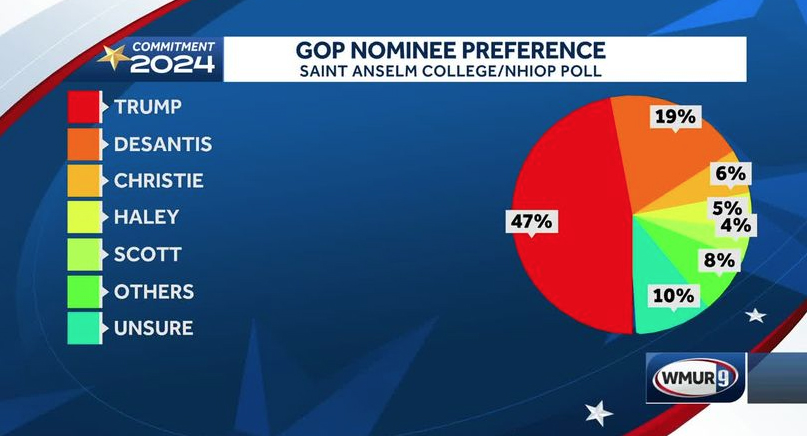By Jim Ellis — Thursday, June 29, 2023
Electorate
Hispanics: Swing Demographic — A new nationwide poll suggests the Hispanic community is now becoming much more of a swing demographic than its previous status as a homogenic Democratic voting bloc. While the Democrats still maintain majority support within Latino communities throughout the country, their margins are beginning to wane.The Ipsos polling firm partnering with the Axios news service and Noticias Telemundo conducted an online nationwide poll of 1,116 Latino adults and registered voters over the June 2-9 period. Possibly the most surprising response is that a respondent plurality of 32 percent believes that neither party cares about them. A total of 30 percent say the Democrats care more about them, 11 percent believe Republicans do, another 11 percent say both do, and 15 percent did not respond for various reasons.
The Ipsos/Telemundo polling analysis further says that the Hispanic numbers are down considerably for Democrats when compared to historical trends. The study compares the 60 percent of the vote Latinos delivered for Democrats in 2022 to Presidents John F. Kennedy receiving 90 percent of the Latino vote in 1960, and Jimmy Carter attracting 82 percent Hispanic support in 1976. In 2022, Republicans garnered 39 percent of the Hispanic vote, which is a significant increase. Any time the Republicans reach 36 percent in this demographic category they are exceeding their national vote goal.
The analysis also points out that non-partisan Hispanic voters are outpacing those who choose a political party affiliation in Arizona, Florida, and Nevada. They are not alone, however, as the population at-large appears to be moving more toward Independent or non-affiliated political party status in most places but particularly the aforementioned.
The analysis also illustrates the fact that Hispanics are the fastest growing demographic group in the country, making them even more valuable as a voting center. The analysts quote US Census figures indicating that the entire US Latino population now exceeds 62 million, which is a whopping 23 percent growth factor in the decade ending in April of 2020.
The analysis also says that while Hispanics are gravitating more toward Republicans in Florida, they are still strongly Democratic in California and holding their own for Democrats in Texas. The analysts suggest, however, that Republicans under-performed among Hispanics in Texas, saying Democrats were able to hold “statewide and district” victories in critical places because of Hispanic loyalty.
The Texas analysis is flawed, however. There were 12 statewide races in the Lone Star on the 2022 ballot, including contests for state Supreme Court and the Court of Criminal Appeals. Republicans won all 12 with a very consistent voting pattern. GOP victories in the statewide contests ranged from just beyond 53 percent to just over 57 percent, while the Democrats consistently fell between 41 and 44 percent. These are typical Texas electoral results.
The one race they claim flipped to the Democrats in Hispanic South Texas was GOP Rep. Mayra Flores’ loss. The analysts did not complete their research. The contest Flores won in a 2022 special election was in a different district than her regular 2022 election campaign because of redistricting.
In the original 34th District, the FiveThirtyEight data organization found a partisan swing of D+5. In the new 34th, where she was paired with Democratic incumbent Vicente Gonzalez of McAllen, the Democrats gained 12 points on the same partisan lean scale to arrive at a D+17 figure. The final vote tally in favor of Rep. Gonzalez was 53-44 percent, which is in line with the traditional partisan voting pattern for such a district.
The Hispanic Republican swing in South Texas, however, is quite real. Of the five congressional districts that touch the Mexican border, Republicans now control two, and the third Democratic seat, the 28th District, is Rep. Henry Cuellar’s (D-Laredo) domain. He is generally regarded as the most conservative Democrat remaining in the House.
The overall premise of the Ipsos/Telemundo poll is that a much larger portion of the Hispanic vote is now more open to both parties. This development is an opportunity for Republicans, but it remains to be seen if the party can craft a series of messages that will convince a larger number of Hispanics to vote their way.
Together with the Asian population, Hispanics represent a Republican opportunity group that the party needs to offset its poor standing among suburban women and college educated voters, a latter trend that only seems to widen. If the GOP is successful in attracting more Latinos and Asians, 2024 could prove to be a watershed political realignment year.


